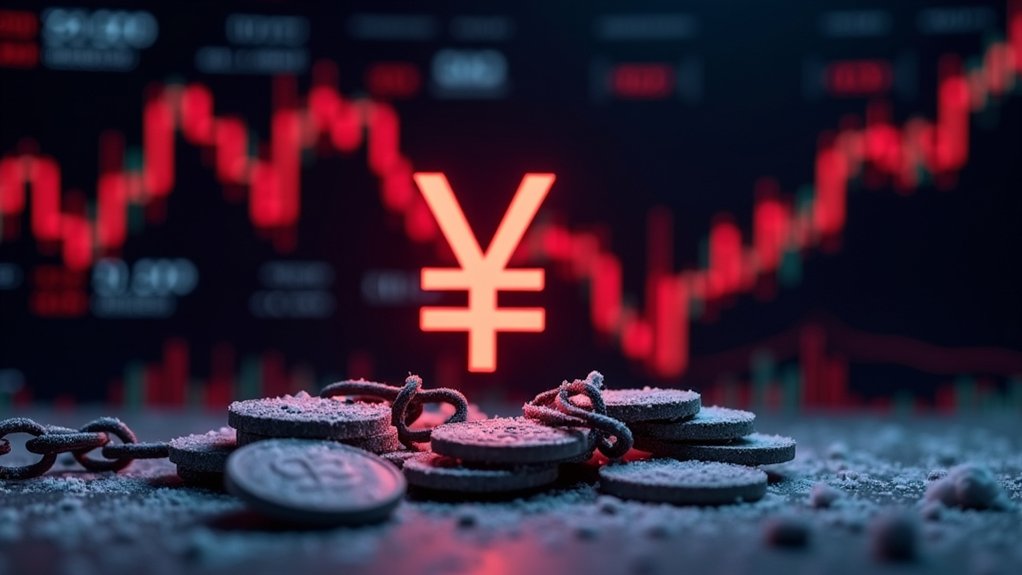The king of cryptocurrencies still looks like small change in the grand scheme of things. Despite Bitcoin’s massive $1.3 trillion market cap and all the media hype, it represents a tiny fraction – just 0.1% – of global wealth. That’s right: all those headlines about crypto millionaires and digital gold amount to less than one-tenth of one percent of the world’s assets.
Let’s put this in perspective. While Bitcoin evangelists celebrate new all-time highs around $67,000 per coin, traditional asset classes are playing in a completely different league. Global equities? $90 trillion. Real estate? $30 trillion. Even old-school gold, which Bitcoin supposedly wants to replace, sits at $12 trillion. Bitcoin’s current position looks more like a rounding error than a financial revolution.
The numbers tell an interesting story about adoption too. Sure, there are over 560 million crypto users worldwide – about 6.8% of the global population. But most of these folks own pocket change amounts, while a select group of 172,000 crypto millionaires and 28 billionaires control the lion’s share. Talk about wealth inequality – Bitcoin’s Gini coefficient of 82.69% makes some oligarchies look like socialist utopias. This distribution notably excludes Satoshi Nakamoto’s frozen wallets, which contain roughly 1 million Bitcoin. The explosive 99% annual growth rate of cryptocurrency ownership suggests this inequality might shift dramatically in coming years.
Several factors keep Bitcoin’s slice of the global wealth pie so thin. It’s still the new kid on the block compared to centuries-old asset classes. Regulators can’t decide if it’s a currency, commodity, or digital pet rock. The price swings like a monkey in a tornado, scaring away traditional investors. The market depth of Bitcoin remains a crucial factor in its stability and overall valuation.
And let’s be honest – most people still can’t figure out how to use it to buy a cup of coffee.
Yet institutional adoption is growing. Major companies are adding Bitcoin to their balance sheets, and new financial products are making it more accessible. As smartphones and internet access spread globally, Bitcoin’s potential reach expands.
But for now, the cryptocurrency that promised to revolutionize finance remains a small fish in an ocean of wealth.





